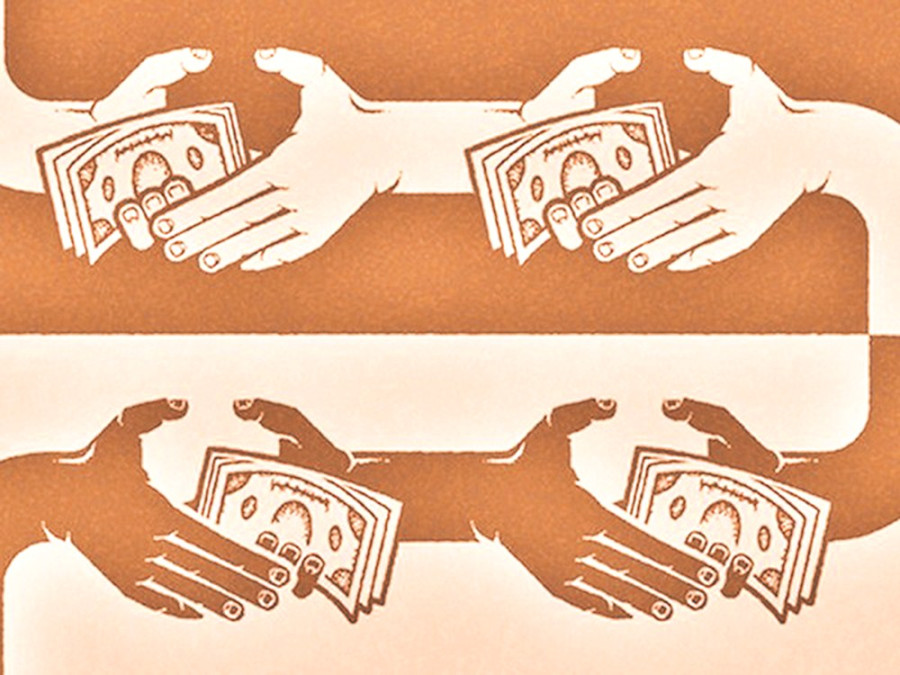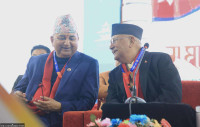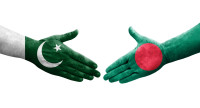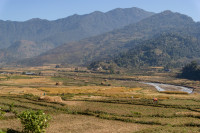Opinion
A hard race
Containing corruption requires a huge master plan for a long-term nationwide campaign
Khagendra N. Sharma
There is no universally acceptable definition of corruption, but in every country there are strong sentiments against it in some form or the other. In a generally acceptable sense, it can be said that corruption is the misuse of authority by one person or party over another with an intention of getting unentitled benefits, which are usually economic, but can also be of a social or political nature. In the modern context, corruption involves benefiting economically through the abuse of authority.
An illusive feature of corruption is that often the victim is a third person, agency or party. As an example, in the case of customs or other forms of revenue collection, the victim of corruption is not the businessman who has to pay a bribe but the government that loses in terms of revenue. Corruption takes not only direct but various indirect forms. When big projects are to be undertaken, the usual form of corruption is commission, which takes a substantial proportion of the project funding. Similarly, when big purchases are made, there is a huge overvaluation of the item to be bought. Similarly, when customs are to be paid, there is a significant undervaluation. Such malpractices not only spoil the quality of the product or the project but, more troublingly, they destroy the basic moral fabric of society. The worst aspect of corruption is that it is not only increasing by the day, but is progressively attracting more corruption in every sphere of human behavior.
The origin of corruption is not traceable in human history. Corruption is the sibling of money, which was conceived to serve four functions: medium, measure, standard and store. The capacity of money to store triggered an unlimited desire in man to hoard. This gave rise to grab money through means fair and foul. Since there is no country in the world without a monetary system, there is none without corruption. But the degree of corruption varies from country to country. I feel ashamed to admit that Nepal is rated one of the most corrupt countries in the world.
Rooting out evil
Recently, corruption is spreading like a wild fire. Is it possible to contain it? Are there some inherent measures in our governmental system to do to? Are such measures effective? If they are not, what other tools should be adopted? Such questions arise in the minds of all those concerned about the welfare of our society. Let us examine some existing measures and consider other ways to control corruption more effectively.
The Auditor General’s function is to check lapses in our fiscal operation. If there are irregularities, the concerned agency is made responsible for immediate correction. This system works in every civilized society but its effectiveness depends on the strength of the rule of law in each society. Another provision to contain corruption is the special police function. There is the Special Police Department—recently renamed Satarkata Kendra—and special police powers are given to the Chief District Officer and/or other authorities who can take action against anyone suspected of having indulged in corruption. Then there are the courts that take the ultimate action on matters of irregularities. In addition, there is the Commission for the Investigation of Abuse of Authority (CIAA). There is also the Council of Ministers, which is in command of all the executive functions. Finally, there is the supreme and sovereign Parliament, to which the Council of Ministers is answerable. All these agencies are supposed to be concerned about people’s welfare. So, on paper, Nepal seems to have the most modern means of good administration. But is it practised?
It would be unwise to say that Nepal does not have the means of correction, but it would be equally untrue to claim that all the measures have worked effectively to bring about people’s welfare. Why is it so? The one and only answer is that the rule of law in Nepal is weak. Yes, there are good laws, but their implementation is problematic. Political instability and refusal of the leaders to come under the law’s purview are the main reasons behind the failure of the rule of law. In many cases of corruption, political parties and leaders are involved. Institutions are not allowed to function normally because there is too much politicisation at every step. When a new government claims that it will contain corruption, it conceals its inner design that ‘my way of corruption will replace your way of corruption.’ This makes the task of controlling corruption difficult.
Strong national willpower
Under such frightening circumstances, containing corruption requires a huge master plan for a long-term nationwide campaign. The first requirement is to strictly implement the punitive provisions without sparing anyone. The failure to take action against the big shots has created a dangerous state of impunity. Corruption should not be related to power and status.
The next requirement is to run an extensive awareness campaign. People should be made aware about how corrupt practices destroy the socio-economic and moral health of our society and how the society can punish wrongdoers.
The next requirement is to integrate lessons on anti-corruption measures at various levels of education. At the primary level, it can just be a basic introduction, but at the secondary level, more information should be included. At higher levels, it should be developed as a full academic subject. Finally, there should be a full-fledged professional course of study for people intending to join the anti-corruption movement.
A highly competent team of experts in political science, economics, sociology, law, criminology, public administration, psychology and moral science should be given the responsibility of not only designing the proper curricula at various levels but also giving the implementers a thorough orientation. The giants of corruption cannot be crushed by anything less than a strong national willpower led by a statesman. Can we expect such a statesman before it is too late? The prospect frustrates me. Let me be wrong!
Sharma is a political analyst. He can be reached at [email protected]




 8.12°C Kathmandu
8.12°C Kathmandu










